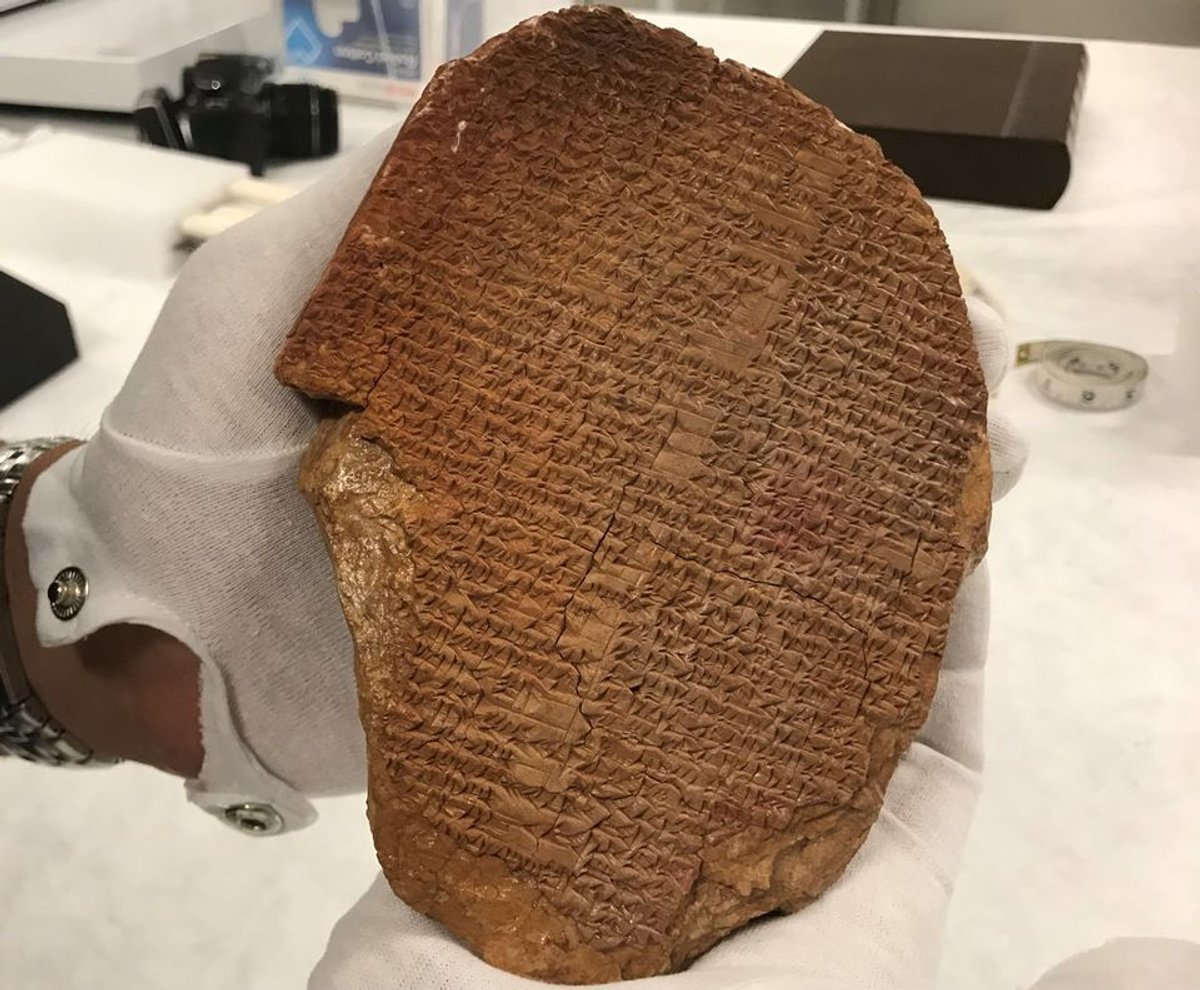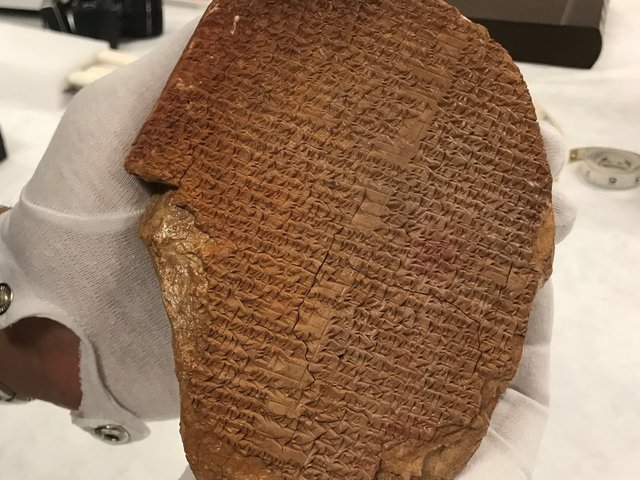The Gilgamesh tablet—the ancient Mesopotamian cuneiform tablet at the centre of years-long legal tussles between Christie’s auction house, federal authorities and the owners of the arts and crafts chain Hobby Lobby—was returned to Iraq today in a ceremony held at the Smithsonian Institution in Washington, DC.
Unesco believes that the artefact, which dates from 1600 BC and is inscribed with part of the Sumerian Epic of Gilgamesh, was looted from an Iraqi museum in the 1990s and smuggled into the US in 2007. The Oklahoma-based company Hobby Lobby—whose billionaire owner Steve Green founded the Museum of the Bible in 2018—purchased the tablet from Christie’s for nearly $2m in 2014, with the intent to display it at the museum.
Authorities seized the tablet in 2019 and Hobby Lobby eventually forfeited the work in July this year. A lawsuit filed by Hobby Lobby against Christie’s last year for fraud and breach of warranty claims that the auction house knowingly consigned a looted work. However, there is no evidence that the consignor, who is said to have purchased the piece in good faith from an antiquities dealer in 2007, knew the piece had been looted when he put the work up for auction.
Earlier this year, Hobby Lobby also filed a lawsuit against the former Oxford University professor Dirk Obbink, claiming he was paid $7m for several ancient papyrus fragments that he had stolen from the archives of the Egypt Exploration Society, housed at the university. The fragments, also intended to enter the evangelical museum’s collection, were returned to the society.
The tablet is the most significant object among more than 17,000 artefacts the US is returning to Iraq. “By returning these illegally acquired objects, the authorities here in the US and in Iraq are allowing the Iraqi people to reconnect with a page in their history,” the Unesco director Audrey Azoulay said in a statement. “This exceptional restitution is a major victory over those who mutilate heritage and then traffic it to finance violence and terrorism.”



